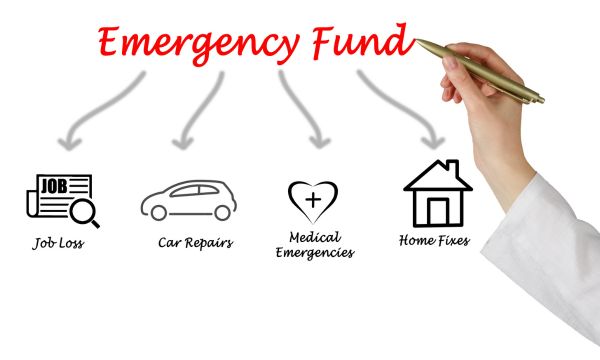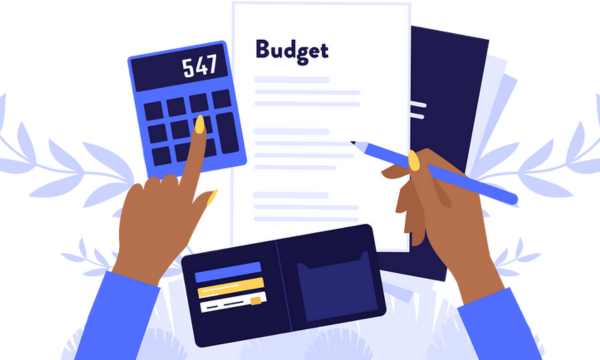Strategies to Reduce Debt
Debt can be a heavy burden that affects not only your financial health but also your overall well-being.
ad
Whether it’s student loans, credit card debt, or a mortgage, money can be a source of stress and anxiety. However, there are strategies you can use to reduce your debt and regain control of your finances.
In this article, we discuss effective strategies to help you on your journey to financial freedom.
ad
1. Make a Budget
The first step to reducing debt is to prepare a detailed budget.
A budget can give you an idea of where your money is going and help you identify areas where you can cut back.
List your sources of income and all your expenses, including necessities such as housing, utilities, and groceries, as well as discretionary expenses.
This gives you a clear picture of your financial situation and you can see where you can save.
2. Prioritize High-interest Debt
If you have multiple sources of debt, prioritize paying off high-interest loans. High-interest debt, such as credit card debt, can accumulate quickly due to compound interest.
By tackling these debts first, you can reduce the total amount you owe more quickly.
3. Create a Debt Repayment Plan
Once you identify high-interest debt, create a debt repayment plan. The plan should indicate how much you will pay for each debt and when.
Some popular debt payoff methods include the snowball method, which pays off the smallest debt first, and the avalanche method, which focuses on high-interest debt.
4. Cut Unnecessary Expenses
Reducing debt often requires sacrifices. Find ways to cut unnecessary expenses from your budget.
Consider cooking at home instead of eating out, canceling unused subscriptions, or finding more cost-effective alternatives for everyday expenses. You can use the money you save to pay off debts.
5. Increase your Income
In addition to reducing expenses, think of ways to increase your income. This may include taking a part-time job, freelancing, or selling unused items. Additional income can be a huge boost to your debt repayment efforts.
6. Build an Emergency Fund
While it may seem counterintuitive to focus on saving while reducing debt, having an emergency fund can prevent you from falling back into debt when unexpected costs arise.
Start with a small amount and work your way up to save three to six months of living expenses.

build-an-emergency-fund- Source(Canva)
7. Negotiate with Creditors
Don’t be afraid to negotiate with your creditors. Many lenders are willing to work with borrowers who are actively seeking solutions.
You may be able to get a lower interest rate, longer payment terms, or even pay off your debt for less than the full amount.
8. Seek Professional Help
If your debt situation is overwhelming, consider seeking professional help from a credit counseling agency. These organizations can provide guidance on managing debt and negotiating with creditors.
9. Stay Committed
Debt reduction is a long-term process that requires commitment and discipline. Focus on your goals, track your progress, and celebrate your milestones.
10. Develop Yourself
Finally, take the time to educate yourself about personal finance. Understanding how debt, interest, and investments work can help you make smart financial decisions that will ultimately help you stay debt-free in the long term.
11. Track your Progress
Constantly monitor your progress and make adjustments as necessary. Review your budget and debt repayment plan regularly to make sure you’re on track.
If your financial situation changes, adjust your plan accordingly. The better you keep track of your finances, the better equipped you will be to achieve your debt relief goals.
12. Celebrate Small Victories
Reducing debt can be a long and challenging journey, so it’s important to celebrate the small wins along the way.
Every time you pay off debt or reach a financial milestone, take a moment to acknowledge your progress. Rewarding yourself for your hard work can help you stay motivated.
13. Avoid Accumulating New Debt
Be careful about accumulating new debt while working to reduce existing debt. Avoid using your credit card for unnecessary purchases and be mindful of your spending habits.
Stick to your budget and financial goals to avoid falling into debt.
14. Consider Debt Consolidation
Debt consolidation is another option to simplify your debts. It involves taking out a new loan at a lower interest rate to pay off existing debts.
This can make managing your debts easier and potentially save you money on interest payments.
15. Investigate Debt Relief Programs
Depending on the type of debt you have, you may qualify for debt relief or repayment assistance.
For example, there are several student loan forgiveness programs that can significantly reduce your debt burden. Research and see if you qualify for these programs.
Conclusion
In summary, reducing debt is a crucial step toward financial freedom. By creating a budget, prioritizing high-interest debt, and implementing these strategies, you can take control of your financial future and work toward a debt-free life.
Remember: It’s not about how much you owe; It’s about taking action to reduce your debt and secure your finances.
FAQs
1. How long does it take to get out of debt with these strategies?
Getting out of debt is individual and depends on the amount of debt and your financial situation. It may take several months to several years.
2. Are there risks associated with debt consolidation?
Debt consolidation can be a useful tool, but it can also involve taking out a new loan. Before you proceed, it is critical that you understand the terms and potential risks.
3. What are the benefits of having an emergency fund while reducing debt?
An emergency fund provides a financial safety net that prevents you from accumulating more debt when unexpected expenses arise.
4. How to negotiate effectively with creditors?
First, contact your creditor, explain your situation, and propose a repayment plan. Be prepared to provide financial documents.
5. Does the government have a debt relief plan?
Some government programs, such as student loan forgiveness, can help reduce certain types of debt. Eligibility for research and requirements for such programs.
 Essential Guide to Annual Budget Planning
Essential Guide to Annual Budget Planning
Starting on the path to financial success with the Essential Guide to Annual Budget Planning is the first step. ad We go into important details in […]
Keep reading Mastering Monthly Budget
Mastering Monthly Budget
Learning how to make a monthly budget is a lot like learning how to get around in a complicated financial world. ad It means knowing where […]
Keep reading Mastering Home Budgeting
Mastering Home Budgeting
Managing your finances effectively is crucial for a stress-free and secure life. ad One of the most critical aspects of financial management is keeping track of […]
Keep reading